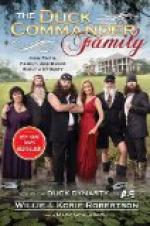Note
The story of these young pioneers of reformation in Oxford has been told by many historians. But there are slight discrepancies in the various accounts, and it is not quite clear who were the small minority who refused the offered reconciliation, and stood firm to the last. But there is no doubt that John Clarke, Henry Sumner, and one other, whose name varies in the different accounts, died from the effects of harsh imprisonment, unabsolved, and unreconciled to the offended church, and that Clarke would probably have perished at the stake had death not taken him from the hands of his persecutors.
There is equally no doubt that Dalaber, Ferrar, Garret, and many others “recanted,” as it was called, and took part in the burning of books at Carfax. But these men must not be too hastily condemned as cowards and renegades. Garret, Ferrar, and several others died for their faith in subsequent persecutions, whilst others rose to eminence in the church, which was soon to be reformed and purified of many of the errors against which these young men had protested. It is probable, therefore, that they were persuaded by gentle arguments to this act of submission. They were not in revolt against their faith or the church, but only eager for greater liberty of thought and judgment. Kindly persuasion and skilful argument would have great effect, and the sense of isolation and loss incurred by sentence of excommunication was such as to cause acute suffering to the devout. There is no doubt that Wolsey won over Thomas Garret by kindliness, and not by threats or penalties; and it is to his honour, and to that of the authorities of Oxford, that, after the first panic, they were wishful to treat the culprits with gentleness, save those few who remained obstinate. And even these were later on given back to their friends, although, as it turned out; it was only to die.
Chapter I: The House by the Bridge
“Holy Church has never forbidden it,” said John Clarke, with a very intent look upon his thoughtful, scholar’s face.
A young man who stood with his elbow on the mantelshelf, his eye fixed eagerly on the speaker’s face, here broke in with a quick impetuosity of manner, which seemed in keeping with his restless, mobile features, his flashing dark eyes, and the nervous motion of his hands, which were never still long together.
“How do you mean? Never forbidden it! Why, then, is all this coil which has set London aflame and lighted the fires of Paul’s Yard for the destruction of those very books?”
“I did not say that men had never forbidden the reading of the Scriptures in the vulgar tongue by the unlettered. I said that Holy Church herself had never issued such a mandate.”
“Not by her Popes?” questioned the younger man hastily.




